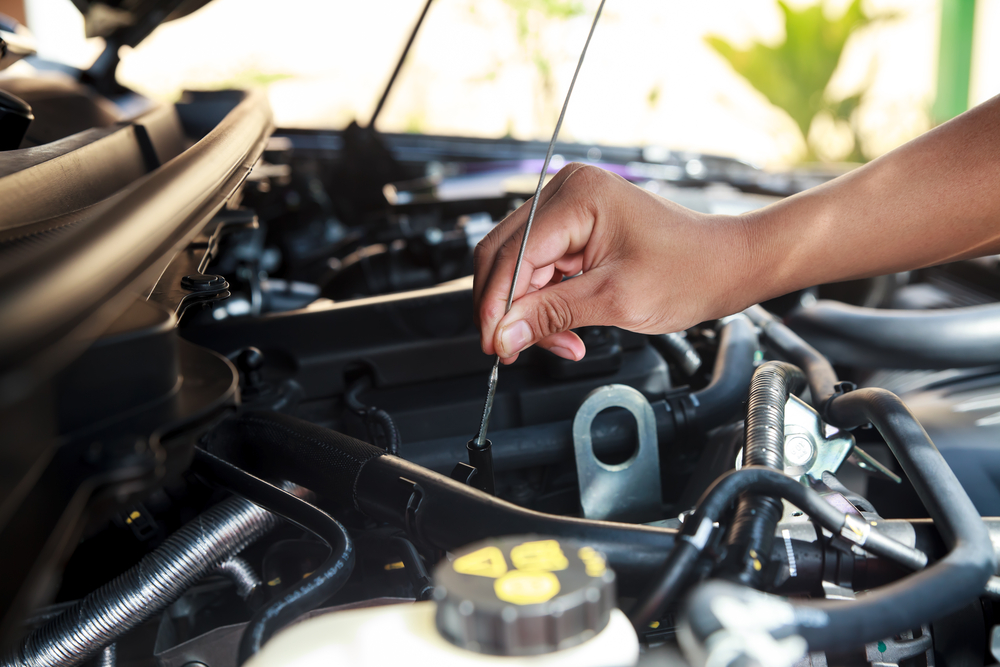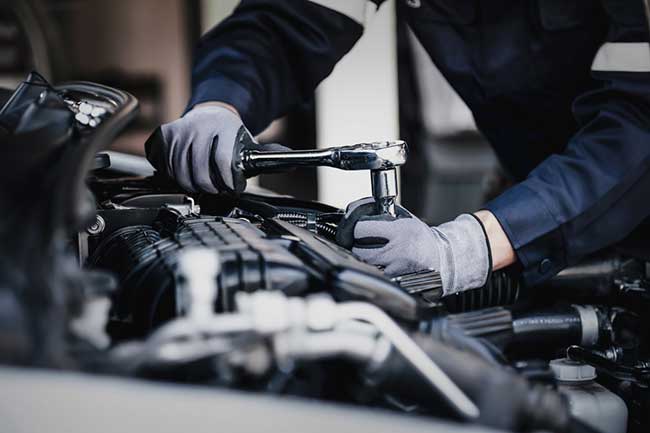All Categories
Featured
When your automobile gets too hot, it can seem like a significant emergency situation, however staying tranquil and adhering to the ideal steps can avoid serious engine damages and aid get you back on the road safely. In this blog post, we'll explore what to do if your cars and truck overheats and supply preventative ideas to decrease the risk of overheating in the future.
What to Do If Your Vehicle Gets too hot. If your car begins to get too hot is to draw over to a safe place as soon as feasible, pull Over to a Safe Place The very first and most crucial step. Transform on your risk lights and lead your car to the shoulder or right into a parking whole lot. Keeping your car running while it's overheated can trigger severe damage to the engine, so it's important to shut the engine off right away.
Allow the Engine Cool Down Once you have actually safely stopped, enable the engine to cool. You should never try to open the radiator cap while the engine is still warm, as the launch of heavy steam or hot coolant can cause burns. Wait a minimum of 15-20 minutes to permit the engine temperature level to go down to a more secure level before proceeding.
![]()
Inspect the Coolant Degree After the engine has cooled, examine the coolant levels by inspecting the tank or radiator. If it's reduced, leading it off with a combination of coolant and water (as defined by your car's supplier) Constantly make use of caution when opening up the coolant reservoir, as stress might have developed.
Look for Visible Leaks While you wait for the engine to cool, visually check the radiator, tubes, and coolant reservoir for any kind of visible leakages or fractures. A dripping radiator or pipe is a common source of overheating. If you discover a significant leakage, it's better to call a tow service than risk driving further and triggering added damage.
Reactivate the Engine After permitting the engine to cool down and making sure the coolant is topped off, start the engine and keep track of the temperature level scale. If the temperature level remains to increase swiftly, it's ideal to shut the engine off and call for roadside help or a tow to the nearby auto mechanic.
![]()
Just How to Avoid Overheating in the Future. On A Regular Basis Check Coolant Levels One of the easiest methods to stop getting too hot is by preserving the appropriate level of coolant. Gradually, coolant can vaporize, so frequently inspect the coolant degrees in the reservoir. Reduced coolant levels can cause the engine to get too hot rapidly, so leading it off as needed.
Examine the Radiator The radiator plays a vital role in keeping the engine cool. Periodically inspect the radiator for any type of blockages, dust, or particles that might block air flow. If you notice any indications of damage, such as rust or leakages, have it repaired or changed immediately.
The thermostat regulates the flow of coolant, while the water pump distributes it via the engine. If either part is malfunctioning, it can prevent appropriate cooling.
Flush the Cooling System Gradually, coolant can degrade and end up being ineffective, triggering a build-up of particles in the system. Purging the air conditioning system every 30,000 miles, or as advised in your lorry's handbook, helps to eliminate any type of sludge or build-up and ensures the cooling system is working properly.
Display the Problem of the Tubes The tubes in your automobile's air conditioning system can wear or crack in time. Inspect the hose pipes for any type of indicators of wear, such as bulging, splits, or leakages, and replace them if required. Stopping coolant leaks can go a lengthy way in avoiding getting too hot.
![]()
Drive Properly Aggressive driving, such as increasing promptly or driving at broadband, puts added stress on your engine and its cooling system. Attempt to drive at moderate rates, specifically on warm days or when driving on high slopes, to minimize the chances of overheating.
Avoid Straining Your Car Carrying too much weight in your automobile puts anxiety on the engine and cooling system. Always be mindful of your automobile's weight limitation, particularly if you're carrying hefty lots, hauling a trailer, or driving lengthy distances in hot weather condition.
Final thought. A getting too hot vehicle can be a frightening experience, yet understanding just how to respond and prevent it can conserve you time, cash, and possible engine damage. Constantly inspect your coolant levels, evaluate essential components like the radiator, thermostat, and hose pipes, and follow a normal upkeep timetable. By remaining on top of your lorry's cooling system, you can lower the danger of overheating and appreciate a smoother, more secure driving experience.
What to Do If Your Vehicle Gets too hot. If your car begins to get too hot is to draw over to a safe place as soon as feasible, pull Over to a Safe Place The very first and most crucial step. Transform on your risk lights and lead your car to the shoulder or right into a parking whole lot. Keeping your car running while it's overheated can trigger severe damage to the engine, so it's important to shut the engine off right away.
Allow the Engine Cool Down Once you have actually safely stopped, enable the engine to cool. You should never try to open the radiator cap while the engine is still warm, as the launch of heavy steam or hot coolant can cause burns. Wait a minimum of 15-20 minutes to permit the engine temperature level to go down to a more secure level before proceeding.

Inspect the Coolant Degree After the engine has cooled, examine the coolant levels by inspecting the tank or radiator. If it's reduced, leading it off with a combination of coolant and water (as defined by your car's supplier) Constantly make use of caution when opening up the coolant reservoir, as stress might have developed.
Look for Visible Leaks While you wait for the engine to cool, visually check the radiator, tubes, and coolant reservoir for any kind of visible leakages or fractures. A dripping radiator or pipe is a common source of overheating. If you discover a significant leakage, it's better to call a tow service than risk driving further and triggering added damage.
Reactivate the Engine After permitting the engine to cool down and making sure the coolant is topped off, start the engine and keep track of the temperature level scale. If the temperature level remains to increase swiftly, it's ideal to shut the engine off and call for roadside help or a tow to the nearby auto mechanic.

Just How to Avoid Overheating in the Future. On A Regular Basis Check Coolant Levels One of the easiest methods to stop getting too hot is by preserving the appropriate level of coolant. Gradually, coolant can vaporize, so frequently inspect the coolant degrees in the reservoir. Reduced coolant levels can cause the engine to get too hot rapidly, so leading it off as needed.
Examine the Radiator The radiator plays a vital role in keeping the engine cool. Periodically inspect the radiator for any type of blockages, dust, or particles that might block air flow. If you notice any indications of damage, such as rust or leakages, have it repaired or changed immediately.
The thermostat regulates the flow of coolant, while the water pump distributes it via the engine. If either part is malfunctioning, it can prevent appropriate cooling.
Flush the Cooling System Gradually, coolant can degrade and end up being ineffective, triggering a build-up of particles in the system. Purging the air conditioning system every 30,000 miles, or as advised in your lorry's handbook, helps to eliminate any type of sludge or build-up and ensures the cooling system is working properly.
Display the Problem of the Tubes The tubes in your automobile's air conditioning system can wear or crack in time. Inspect the hose pipes for any type of indicators of wear, such as bulging, splits, or leakages, and replace them if required. Stopping coolant leaks can go a lengthy way in avoiding getting too hot.

Drive Properly Aggressive driving, such as increasing promptly or driving at broadband, puts added stress on your engine and its cooling system. Attempt to drive at moderate rates, specifically on warm days or when driving on high slopes, to minimize the chances of overheating.
Avoid Straining Your Car Carrying too much weight in your automobile puts anxiety on the engine and cooling system. Always be mindful of your automobile's weight limitation, particularly if you're carrying hefty lots, hauling a trailer, or driving lengthy distances in hot weather condition.
Final thought. A getting too hot vehicle can be a frightening experience, yet understanding just how to respond and prevent it can conserve you time, cash, and possible engine damage. Constantly inspect your coolant levels, evaluate essential components like the radiator, thermostat, and hose pipes, and follow a normal upkeep timetable. By remaining on top of your lorry's cooling system, you can lower the danger of overheating and appreciate a smoother, more secure driving experience.
Latest Posts
Explore Affordable Auto Repairs with Montclare’s Monthly Service Specials
Published en
1 min read
Uncover Brake Repair & More: Comprehensive Auto Care Solutions from Montclare Auto Repair
Published en
1 min read
Shield and Improve Your Home with Weathercraft's Exterior siding Solutions
Published en
1 min read
More
Latest Posts
Explore Affordable Auto Repairs with Montclare’s Monthly Service Specials
Published May 24, 25
1 min read
Uncover Brake Repair & More: Comprehensive Auto Care Solutions from Montclare Auto Repair
Published May 23, 25
1 min read
Shield and Improve Your Home with Weathercraft's Exterior siding Solutions
Published May 22, 25
1 min read